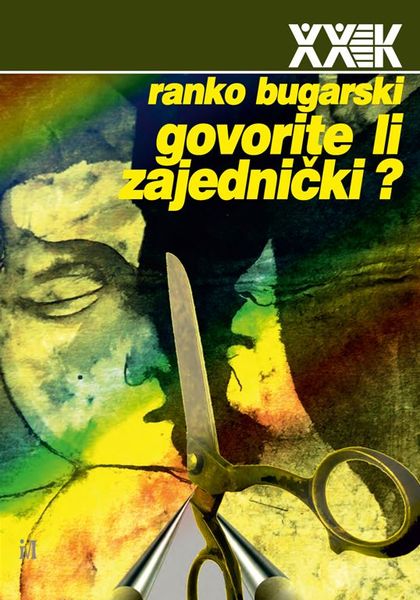Ranko Bugarski, Do you speak polycentric?:
The origins and reception of the Declaration on the common language
Published in cooperation with the KROKODIL association
and the forumZFD, Belgrade.
First edition: March 2018
208 pages
Price: 600 dinars
Dr Ranko Bugarski, Professor of Linguistics at the Faculty of Philology of the University of Belgrade, is the author of many works in various fields of linguistics. Biblioteka XX. vek published his works Linguistics about people (1975, 1983), Language in society (1986), Language from peace to war (1995), Faces of language: Sociolinguistic themes (2001, 2002), New faces of language: Sociolinguistic themes (2002, 2009), Jargon: A study in linguistics (2003, 2006), Language and culture (2005), Europe in language (2009), Language and identity (2010), Portrait of a language (2012), Sarmageddon in Mesopotamia: A lexical game of hide and seek (2013), A travel guide through memory (2014), and Languages in the attic (2016). He has been president of the European Linguistic Society and vice president of the International Association for Applied Linguistics. He is a member of the European Academy of Sciences and Arts and a counselor to the Council of Europe for regional and minority languages. Three collections have been published in his honour: History and perspectives of language study – Papers in honor of Ranko Bugarski (Amsterdam 2000); Language, society and knowledge: for Professor Ranko Bugarski from his students (Belgrade 2003); and Language in Use (Novi Sad 2011).
In the preface and five chapters of this book Ranko Bugarski, a linguist of international reputation, provides answers to the most important questions that are posed about the Declaration on the common language (published on 30 March 2017), in the preparation of which he made a major contribution. As in the author’s other books for Biblioteka XX vek, this one includes an appendix with an overview of the newest instances of slang and jargon and a selected bibliography of sociolinguistics.
Table of contents
Preface: „Can a common language contribute to reconciliation?“
I An introduction to nations, nationalism and language
II Consequences of the administrative disintegration of the Serbo-Croatian language
III The “Languages and nationalisms” project
IV The genesis, publication, and content of the “Declaration on the common language”
V Responses to the Declaration
The subject of this book is the current language situation in the new states on the territory where the Serbo-Croatian/Croato-Serbian language is spoken, on different portions of which Serbian, Croatian, Bosnian, and Montenegrin now function as separate official languages. The analysis is built around a consideration of the possibility of calming the seething tensions that accompanied the destruction of Yugoslavia and the disintegration of the Serbo-Croatian language, and of improving communication among the citizens of Serbia, Croatia, Bosnia and Herzegovina, and Montenegro by way of softening the mostly artificially created barriers of nationality and language that have been placed between them. The main villain of the story is nationalism, which brought about a chain of destruction of all that was shared in this territory until the war, and the main hero of the story is signified by the central idea of a common language. (…)
The core of the book is formed by chapters about a recent project and a document it produced, which calls, in essence, for the harmonization of nationalist language and identity politics in all four states with linguistic reality. Over the course of European history millions of people have fallen in wars for the glory of the Nation, and the uncritical elevation of the collective above the individual. In contrast with that, this project and the accompanying Declaration promote undermining nationalism through a critical rethinking of the idea of the nation that stands behind it, taking into account that modern understandings consider the nation as an imagined community (as it was expressed by Benedict Anderson). By this measure the absolute primacy of collective identity over individual rights and freedoms is called into question.
This book is written with the desire that a valuable initiative on the part of a large number of dedicated people, whatever its eventual result, be presented on the pages of a book from a distinguished publisher, and so remain permanently recorded. (from the Preface)



